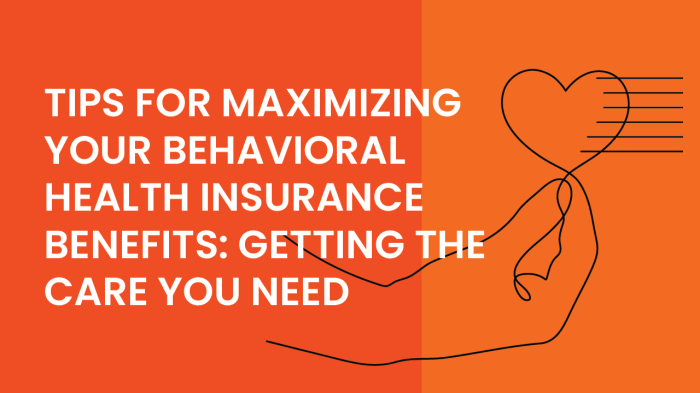Insurance Policies That Reward Healthy Behavior sets the stage for this enthralling narrative, offering readers a glimpse into a story that is rich in detail and brimming with originality. In this guide, we delve into the world of insurance policies that incentivize healthy behavior, exploring the various types, benefits, tracking methods, and financial incentives offered by insurance companies.
Types of Insurance Policies
Insurance policies that reward healthy behavior come in various forms, each with its own unique features and benefits. Let's explore the different types of insurance policies that promote wellness and preventive care.
Wellness Programs
Wellness programs are insurance policies that incentivize policyholders to engage in healthy activities and behaviors. These programs often include rewards such as discounts on premiums, cash incentives, or gift cards for participating in activities like exercise, nutrition programs, or health screenings.
Usage-Based Insurance
Usage-based insurance policies, also known as telematics insurance, track policyholders' behavior through devices installed in their vehicles or smartphones. These policies reward safe driving habits such as obeying speed limits, avoiding sudden stops, and driving during safer times of the day with lower premiums or discounts.
Preventive Care Coverage
Preventive care coverage insurance policies focus on encouraging policyholders to prioritize preventive healthcare services such as annual check-ups, vaccinations, and screenings. By covering these services at little to no cost, insurance companies aim to promote early detection of health issues and proactive health management.Examples of insurance companies offering these types of policies include Vitality, which offers wellness programs that reward policyholders for healthy activities, and Progressive Snapshot, a usage-based insurance policy that tracks driving behavior to determine premiums.
Additionally, many health insurance providers offer preventive care coverage as part of their standard plans to encourage policyholders to prioritize preventive healthcare services.
Benefits of Healthy Behavior Incentives

Insurance policies that reward healthy behavior offer a range of benefits for both individuals and insurance companies. These incentives not only encourage individuals to adopt healthier lifestyles but also have a positive impact on reducing healthcare costs in the long run.
Improved Health Outcomes
By offering rewards for healthy behaviors such as regular exercise, balanced diet, and preventive screenings, insurance policies motivate individuals to take better care of their health. This can lead to reduced risk of chronic diseases, improved overall well-being, and increased longevity.
Cost Savings for Individuals
Individuals who actively engage in healthy behaviors and meet the requirements set by their insurance policies can benefit from reduced premiums, co-pays, or deductibles. This not only serves as a financial incentive but also encourages individuals to prioritize their health and well-being.
Lower Healthcare Costs for Insurance Companies
By promoting healthy behaviors and preventive measures, insurance policies can help reduce the need for expensive medical treatments and interventions in the future. This, in turn, leads to lower healthcare costs for insurance companies, ultimately resulting in more sustainable and affordable coverage options for policyholders.
Tracking and Monitoring Healthy Behavior
Insurance companies utilize various methods to track and monitor the healthy behaviors of policyholders to encourage and reward positive lifestyle choices. By collecting data on exercise, diet, and other health-related activities, insurers can offer incentives for maintaining healthy habits.
Methods of Data Collection
- Wearable Devices: Insurance companies often provide policyholders with wearable devices such as fitness trackers or smartwatches to monitor their physical activity levels, heart rate, and sleep patterns.
- Mobile Apps: Some insurers have developed mobile applications that allow policyholders to log their exercise routines, food intake, and other health behaviors for tracking purposes.
- Health Screenings: Policyholders may be required to undergo periodic health screenings to assess their overall health and identify any areas for improvement.
Privacy Concerns and Data Security
- Privacy Protection: Insurance companies must ensure that the data collected from policyholders is kept confidential and only used for the purpose of promoting healthy behaviors. Personal information should be safeguarded against unauthorized access.
- Data Security Measures: Insurers should implement robust data security measures to protect policyholders' information from cyber threats and breaches. Encryption, firewalls, and other safeguards should be in place to prevent data theft.
- Opt-In Programs: Policyholders should have the option to participate in healthy behavior tracking programs voluntarily, with clear consent and understanding of how their data will be used.
Financial Incentives and Rewards
Insurance companies often offer financial incentives and rewards to policyholders who exhibit healthy behavior. These rewards can serve as motivators for individuals to maintain a healthy lifestyle and adhere to their health goals.
Rewards for Meeting Health Goals
Policyholders can earn rewards by meeting specific health goals Artikeld by their insurance policies. For example, achieving a certain number of steps per day, maintaining a healthy BMI, or quitting smoking can all lead to financial incentives such as lower premiums, cash rewards, or discounts on health-related products and services.
Effectiveness in Motivating Healthy Habits
Research has shown that financial incentives can be effective in motivating individuals to adopt healthier habits. By providing tangible rewards for healthy behavior, insurance companies create a positive reinforcement loop that encourages policyholders to make better lifestyle choices. This can lead to improved overall health outcomes and reduced healthcare costs in the long run.
Conclusive Thoughts
In conclusion, Insurance Policies That Reward Healthy Behavior not only promote well-being but also pave the way for a healthier and more financially secure future. By understanding the nuances of these policies, individuals can make informed decisions to lead healthier lives while reaping the rewards offered by insurance companies.
FAQ Explained
How do insurance companies track healthy behaviors?
Insurance companies use various methods such as wearable devices, mobile apps, and online portals to collect data on exercise, diet, and other health-related activities.
What kind of financial incentives can policyholders receive for healthy behavior?
Policyholders can earn rewards like premium discounts, cash incentives, or gift cards by meeting health goals set by the insurance company.
Are there privacy concerns related to tracking healthy behaviors?
Privacy concerns may arise regarding the collection and use of personal health data, but insurance companies are required to adhere to strict privacy regulations to protect policyholders' information.












